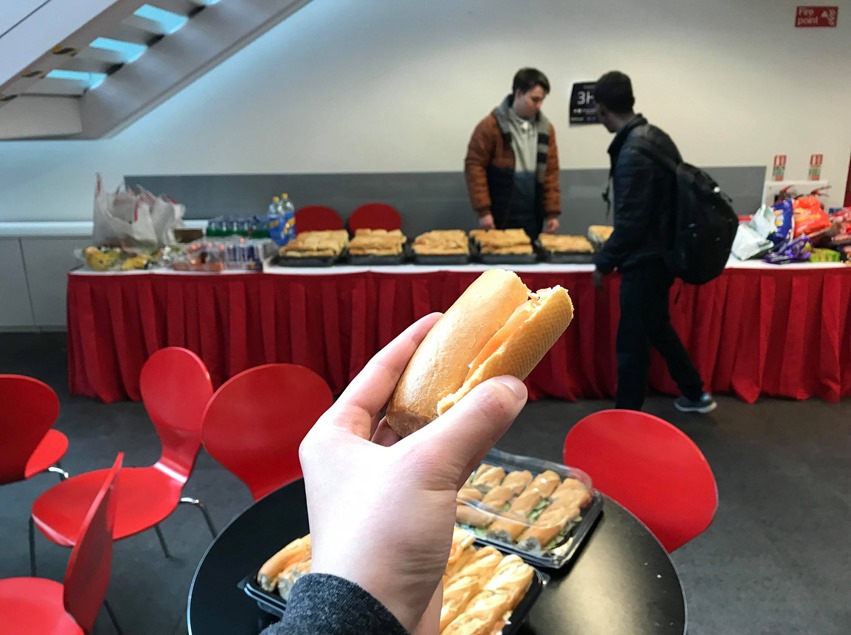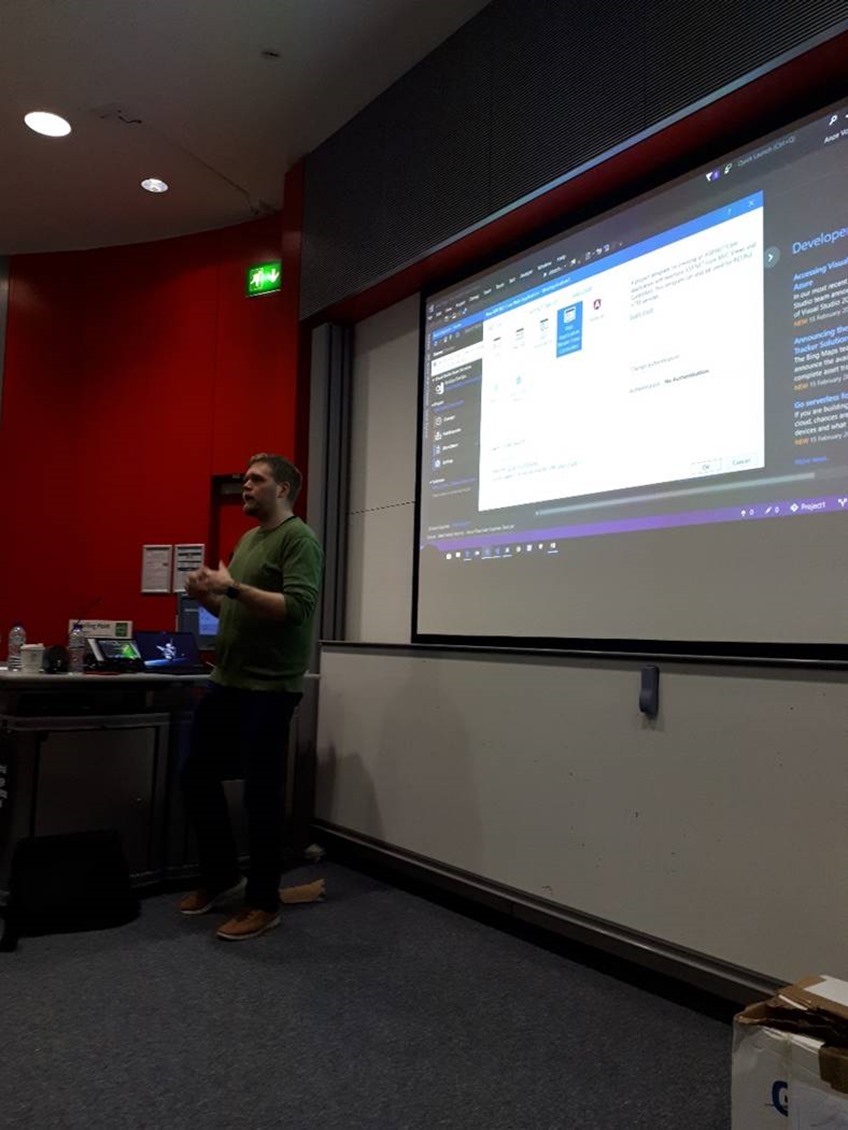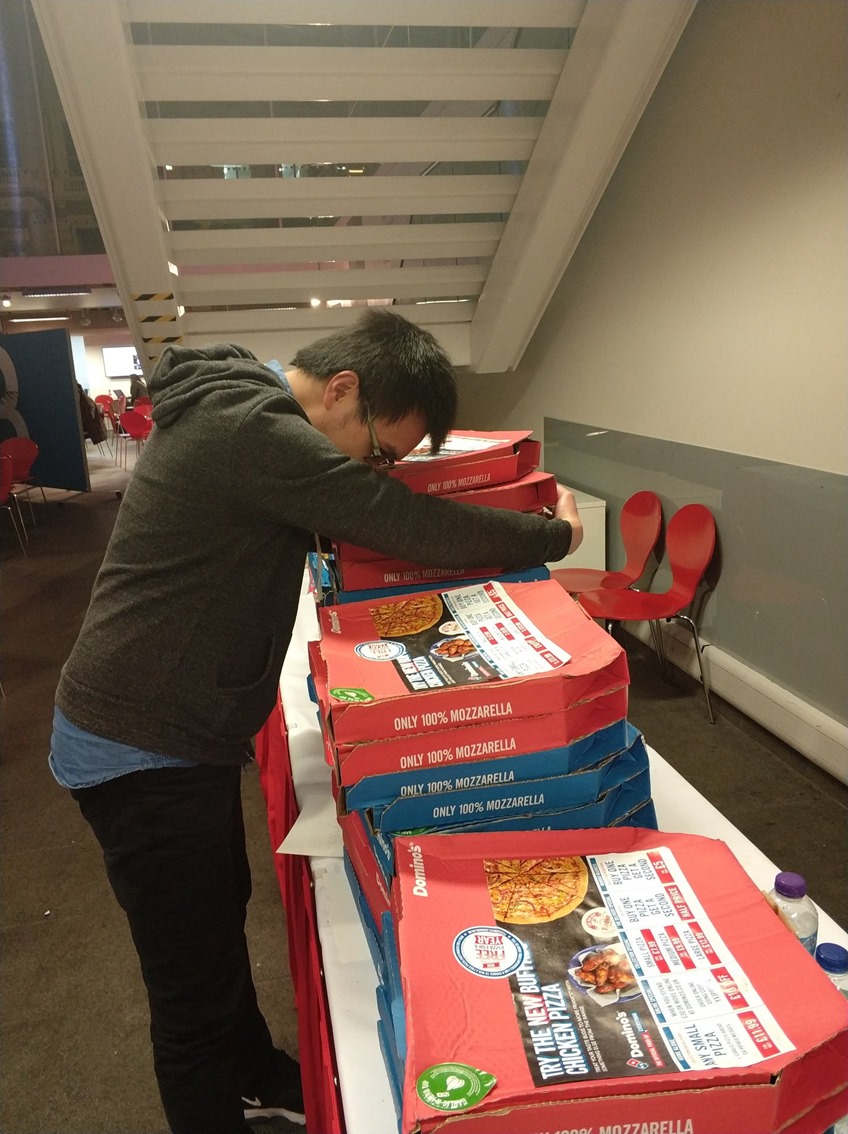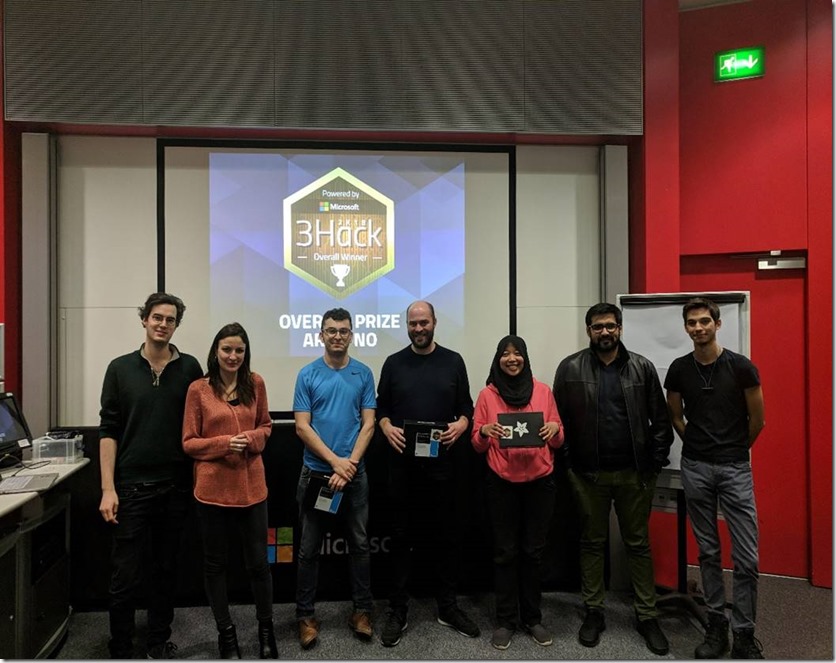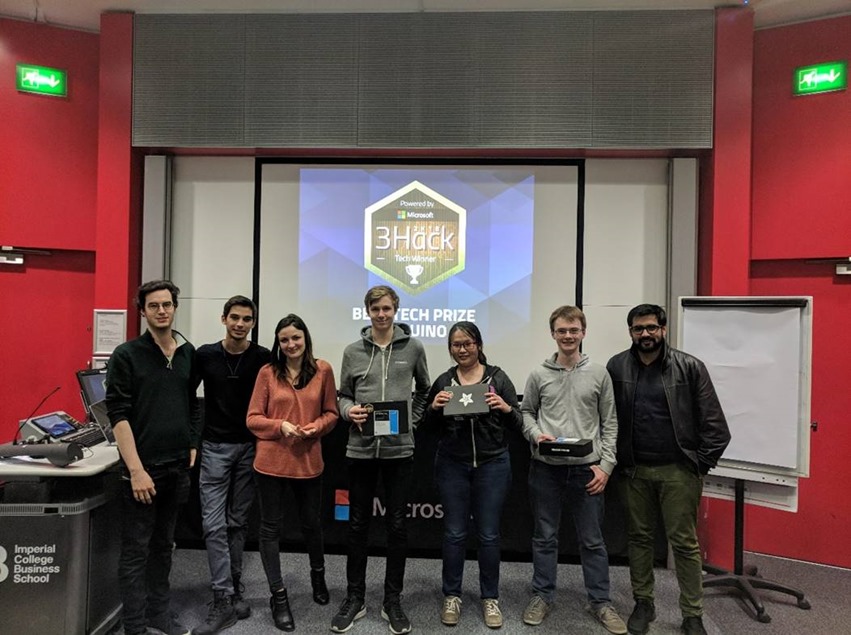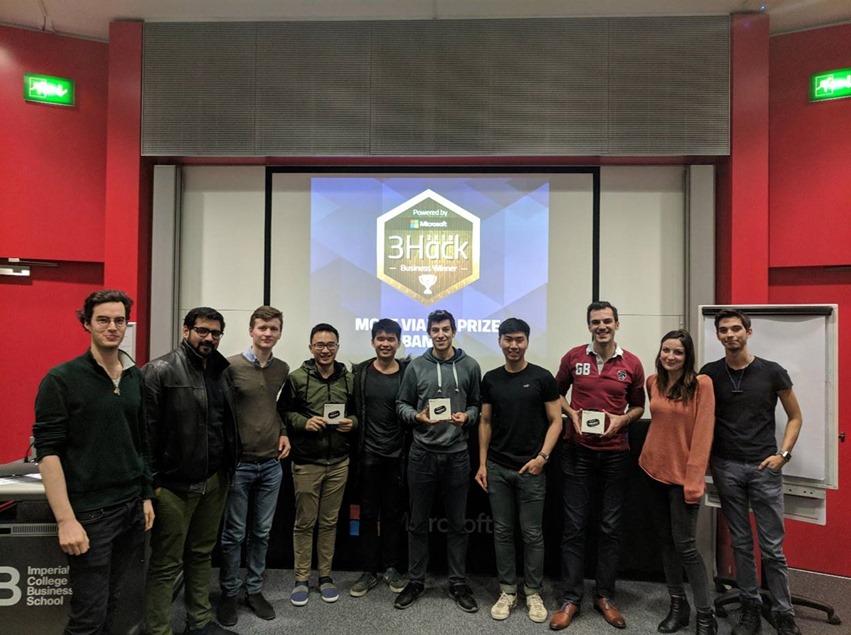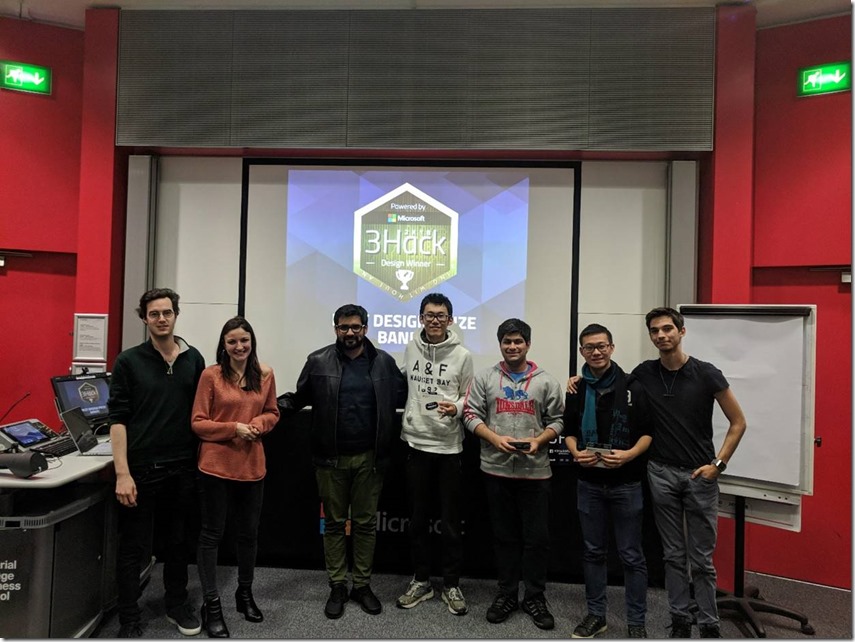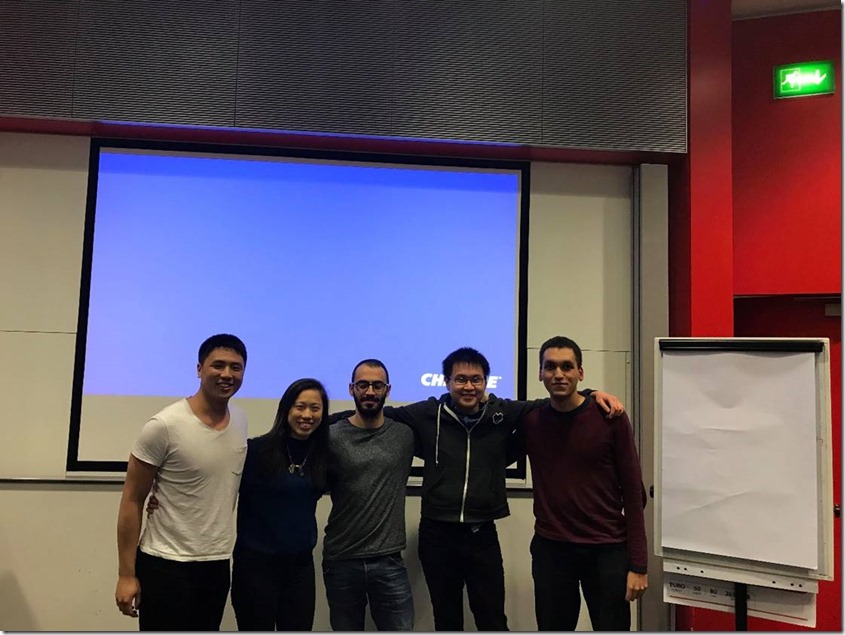Bringing designers, businessmen and programmers together! for awesome ImagineCup.com entries
Guest post by Nicole Suen , MBA Candidate 2017-18, Imperial Business School, Imperial College London Microsoft Student Partner
Imperial 3Hack 2.0 occurred on Feb 18th at Imperial College Business School. 3Hack 2.0 is an open-ended hackathon focused on bringing together students interested in below 3 major areas: design, business, and programming to use technology to generate a new idea and bring it to live.
We had over 60 students participating this year. We started the day with a healthy breakfast sponsored by the Imperial College Business School. Participants met each other in an informal setting before the hackathon.
Afterward, all participants attended the opening ceremony. Ioana Tanase,Microsoft Global MBA recruiter and Siddhartha Chaturvedi, senior partner development manager, health care and life science from Microsoft gave the welcome speech and encouraged students to be creative and have a good time during this hackathon. Ioana also reminded students to submit their ideas to the Imagine Cup, an annual global competition that encourages students to use technology to change the way we live.
We also invited Michael Moses, founder of Donaco, an app uses artificial intelligence to place pop-up boxes next to relevant news articles that allow readers to instantly give money to that cause. Michael shared that although they did not win 3 Hack last year, it was where allowed his team to move their idea from scratch to a concept.
After the opening ceremony, participants started to form teams.
We heard ideas from Tinder for stock market, a web browser adds in to provide streamline & simplify payment process, to a platform that provides instant feedback from online interview. Two of our judges Ioana and Sid walked around to different meeting rooms to help and give advice to our participants. For example: one participant asked Ioana for a tip. Ioana suggested the participants to consider existing competitors and the technologies the team can use to make the idea a reality.
During the day, we had Emily Byle, audience marketing manager, Slaviana and Sebastian from UCL to visit us to show their support for the Imagine Cup.
The closing date for entries to the Imagine Cup UK final is March 18. Visit the official website for more information.
Lunch was sponsored by eesoc, the Imperial College Electrical Engineering Society.
After the delicious lunch, all participants continued to work on their ideas. In the afternoon, Anze Vodovnik, senior software development engineer, held a workshop on Azure WebApps and continuous integration/deployment. It was a very informative session. Participants learned the various services on the Azure platform.
Dinner was sponsored by Microsoft! Thank you! Everyone loved the pizzas.
Finally, presentation time came! We had 12 teams in total, each presented for 4 mins with 1 min Q&A. The judging criteria were technical difficulty- how technically challenging and sophisticated was the hack you produced. Most viable- how useful is your hack in the real world and how you can monetise it. Best design- how visually appealing is your hack and the user experience. We had 4 prizes, Overall Prize, Best Tech Prize, Most Viable Prize, and Best Design Prize
The results were as follow:
Overall Prize
MagicMirror
Judges Michael Moses, Ioana Tanase, Siddhartha Chaturvedi, and Koral Hassan. Team members: Larasati, Orfeo, and Joe M
Inspiration
It's difficult to give useful feedback when reviewing presentations live. You cannot interrupt the person presenting, but simultaneously a long list of comments at the end can be confusing and unproductive. Furthermore, you may not have access to a similar audience to that which you will be presenting. As a result getting accurate and relevant feedback can be impossible.
What it does
MagicMirror allows you to get presentation feedback, from friends, the public, or audience-relevant professionals. The feedback is presented in context to your presentation and is automatically analysed for sentiment and keywords to allow for faster review. For the review, feedback can be done using a laptop, or on the go through a mobile. The interface is simple and clear, encouraging immediate commenting without disrupting the flow of the presentation.
How we built it
MagicMirror utilises Microsoft's Text Analytic APIs to offer intelligent insights into comment content. The design is fluid and built to run on a range of device sizes from mobile to laptop.
Accomplishments that we're proud of
MagicMirror manages to steamline a common issue, in an intuitive and effective manner.
What's next for MagicMirror
MagicMirror is now being scaled up to a full prototype in preparation for user testing.
Built With
node.js
azure
typescript
angular.js automatically analysed for sentiment and keywords to allow for faster review. For the review, feedback can be done using a laptop, or on the go through a mobile. The interface is simple and clear, encouraging immediate commenting without disrupting the flow of the presentation.
Best Tech Prize
ProTip
Judges Michael Moses, Ioana Tanase, Siddhartha Chaturvedi, and Koral Hassan. Team members: Fangfang Hu, Joe Arrowsmith, and Edward Stables
Inspiration
Providing real-time information on what is around you.
How we built it
Build using Tensorflow, java, python and cognitive services for Android
Built With
cognitive-services
tensorflow
java
python
android
Most Viable Prize
SkoolDriver- "The safer and more luxurious travel option for school kids."
Judges Michael Moses, Ioana Tanase, Siddhartha Chaturvedi, and Koral Hassan. Team members: Yong Keat Poh, Eduardo Vila, Dahui, Karim Awad, Gerald Low
Inspiration
The inspiration came when we considered the modes of transport for school children to school in the SEA region. Currently, there is no mode of transport that guarantees the safety of children being sent to school. School buses may not go to service routes where families live or be able to drop students directly outside their house due to small roads and tight corners. Moreover, there are no proper verification process for drivers using current ride-sharing apps.
What it does
The app allows parents to choose from a list of available drivers operating within the vicinity. The drivers can fetch up to 3 kids within one journey and this app optimizes the route for them.
How we built it
The back-end is coded in python, optimizing the route and estimating arrival time through the Google Map API. The front-end is done in React Native.
Challenges we ran into
1) A major roadblock included establishing the right network connections, e.g. the REACT Native App had problems connecting to the server and getting the appropriate server responses. 2) Using Google Maps API retrieved huge blocks of information - a substantial amount of time was consumed filtering out the needed parts. 3) From a commercial standpoint, there were lack of direct and solid evidence for market validations and we had to make a few assumptions along the way.
Accomplishments that we're proud of
We've built a MVP that receives multiple location coordinates and optimizes the travel route to minimize travel time for the driver.
What we learned
The transport industry in SEA, market size of the higher-end vehicles in Malaysia, using the google API, etc.
What's next for SkoolDriver
Outlining a thorough screening process to ensure that school kids using this service are in safe hands.
Built With
python
react.js
react-native
Best Design Prize
Judges Michael Moses, Ioana Tanase, Siddhartha Chaturvedi, and Koral Hassan. Team members: Hitesh Kumar, Frank Qu, and Eric Zhu
TLDPoster- Too lazy or tired to read all the shabby and badly made posters littering local walls? Well, you'll want to see this!
What it does
So we wanted to make the whole process of facing up to hoards of posters easier, and we decided we'd work towards an app that lets you simply scan the poster, and get back a summary of the important info. Then you can decide if you want to attend the event or take up the message of the poster, and even add it to your schedule and tell your friends in one easy place.
Built With
python
Try it out
GitHub Repo
Big Thank you
To the MSP team who organized the hackathon and the judges the judges Ioana Tanase, Siddhartha Chaturvedi, Michael Moses, and Koral Hassan for coming. Also, we learned a lot from the participants about their ideas and creativity. See you all in 3 Hack 3.0 in 2019 and good luck for the winning teams and teams going forward to ImagineCup entries.
Organizers: Nick Li, Nicole Suen, Panayiotis Panayiotou, Alan Du, and Rishi Rabheru
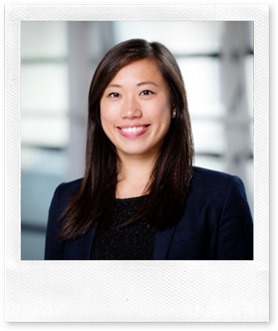
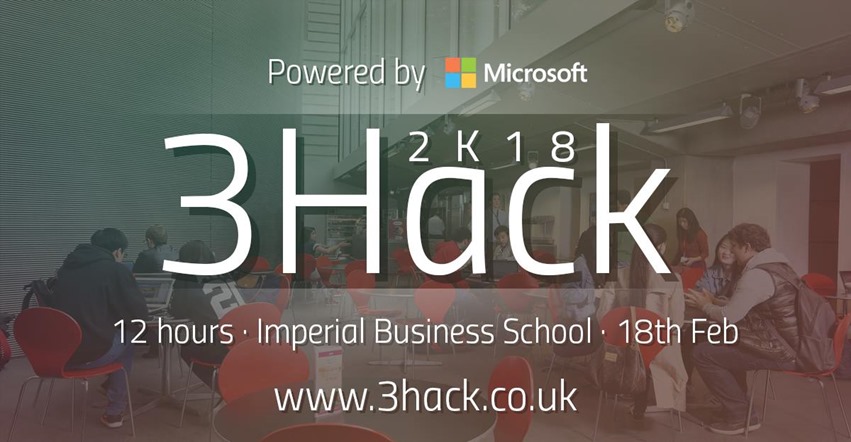
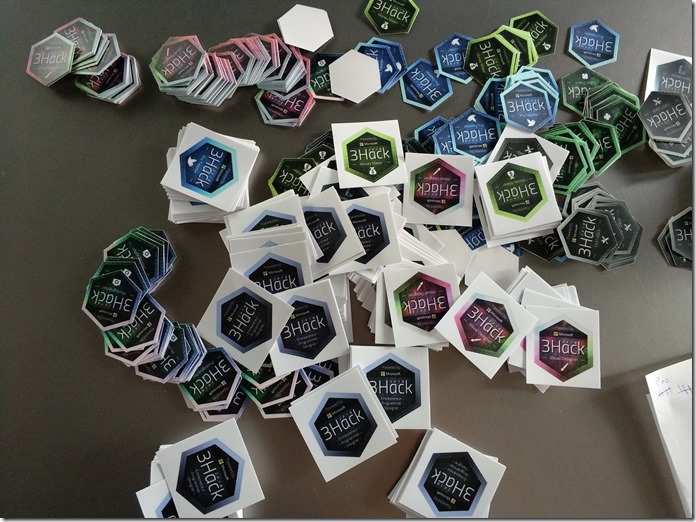
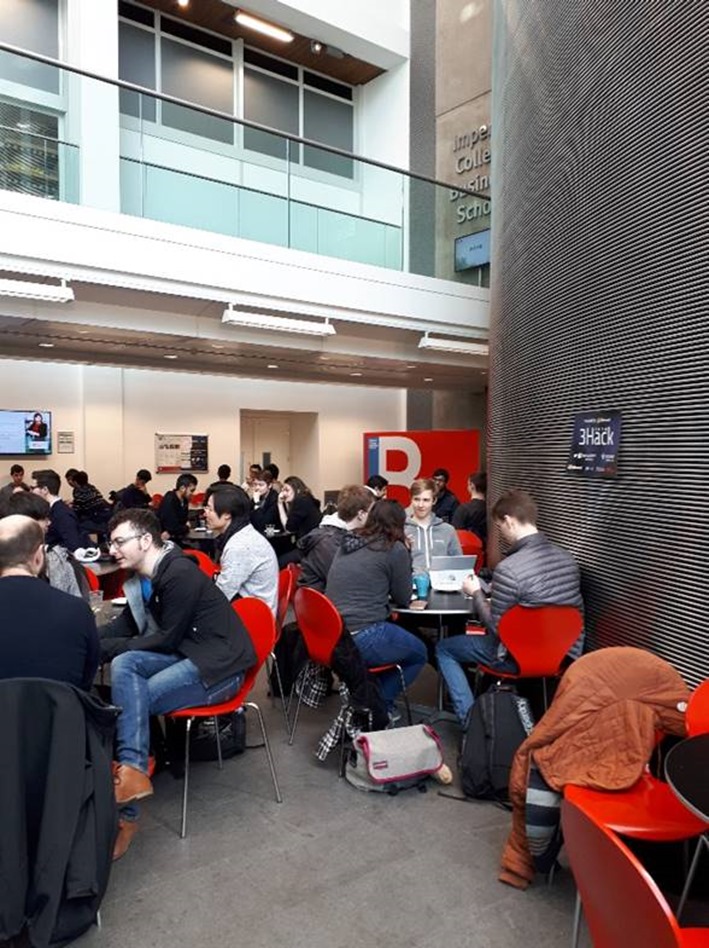
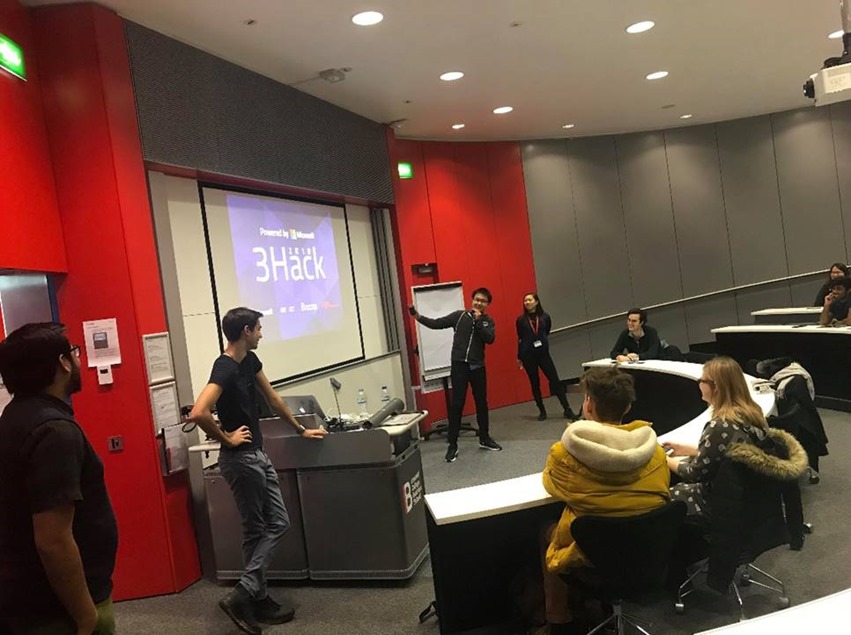
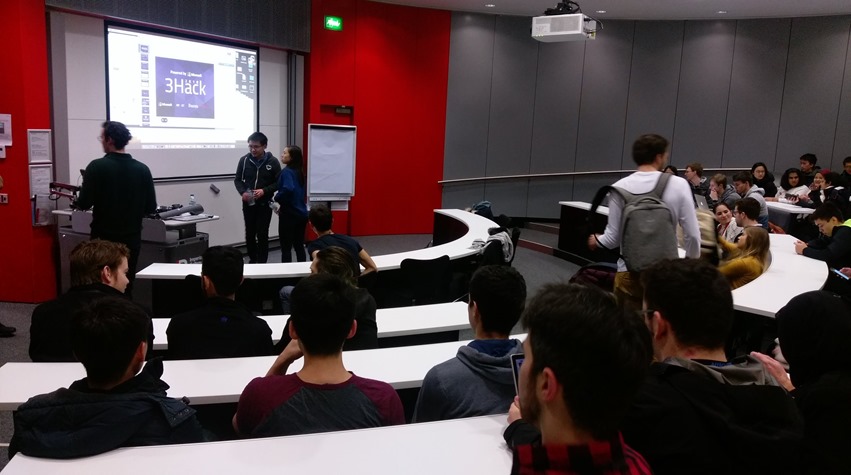
![banner[1] banner[1]](https://msdntnarchive.z22.web.core.windows.net/media/2018/01/banner1.jpg)
